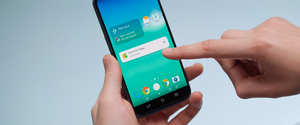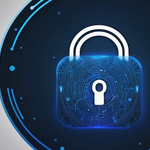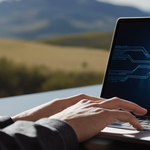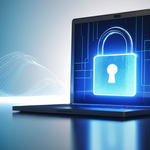
A Virtual Private Network (VPN) functions as a critical security and privacy tool for iPhone users by creating an encrypted tunnel through which all internet traffic travels, effectively masking the device’s real IP address while protecting data from interception by encrypting communications between the device and remote servers. Beyond this fundamental protective layer, VPNs serve multiple practical functions on iPhone including preventing Internet Service Provider (ISP) surveillance and data selling, enabling access to geographically restricted content, reducing exposure to tracking by advertisers and malicious actors, and facilitating secure access to corporate resources for remote workers. This comprehensive report examines the multifaceted roles VPNs play on iPhone devices, exploring the technical mechanisms underlying their operation, the diverse benefits they provide to users, the various deployment models available through iOS, the practical limitations and drawbacks users should understand, and the important distinctions between VPN functionality and the privacy protection myths that sometimes surround these tools.
Fundamental Definition and Operational Mechanisms of VPN Technology on iPhone
A Virtual Private Network on an iPhone is fundamentally a Software as a Service (SaaS) product that establishes a secure, encrypted connection between the user’s device and remote servers operated by the VPN service provider. The primary function of this technology involves encrypting all digital traffic sent to and from the iPhone, thereby creating a protected communication channel that shields user activity from various third parties including internet service providers, hackers on unsecured networks, website administrators, and cellular network operators. When a user activates a VPN on their iPhone, the device routes all its internet traffic through these remote servers, which are typically distributed across various geographic locations worldwide, and the VPN service simultaneously masks the device’s real Internet Protocol (IP) address by replacing it with the server’s address.
This functional arrangement creates multiple protective effects simultaneously. The encryption ensures that even if data is intercepted while traveling across network infrastructure, it cannot be read by unauthorized parties without the appropriate decryption key. The IP address masking prevents websites, applications, and network monitors from identifying the user’s physical location or the true source of their internet connection. The traffic routing through remote servers means that the user’s actual internet service provider can only see that data is traveling to a VPN server rather than seeing the specific websites and services being accessed by the user. It is important to note that using a VPN does not fundamentally change how users interact with the internet; rather, it simply adds protective layers that enhance the security and privacy characteristics of those interactions.
How VPN Encryption Protects iPhone Data and Communications
The security foundation of VPN operation on iPhone rests upon sophisticated encryption algorithms that transform user data into unreadable ciphertext before it leaves the device. Encryption strength on iPhone VPNs typically relies on Advanced Encryption Standard (AES) with 128-bit or 256-bit keys, with security professionals generally considering 256-bit encryption the minimum acceptable standard for a secure VPN connection. When a user sends data through a VPN connection on their iPhone, the encryption process transforms readable information into a format that can only be deciphered by someone possessing the appropriate decryption key, effectively rendering intercepted data useless to potential eavesdroppers.
The process of tunneling adds an additional protective layer beyond basic encryption. Tunneling encapsulates user data within another set of data packets that travel through the encrypted connection, creating a dual-layered approach where even if an attacker manages to penetrate the outer layer of protection, the inner data remains secure and inaccessible without proper decryption. This architecture proves particularly valuable when iPhone users connect to unsecured or public Wi-Fi networks such as those found in cafés, restaurants, hotels, and airports, where malicious actors commonly attempt to intercept unencrypted traffic. Without VPN protection, an attacker on the same public network could potentially read emails, intercept passwords, view sensitive documents, and capture financial information transmitted by the iPhone user, but with VPN encryption active, all such data becomes indecipherable to network snoopers.
VPN as a Defense Against ISP Monitoring and Data Exploitation
One of the most significant functions a VPN performs on an iPhone involves preventing Internet Service Providers from accessing and monetizing user browsing data. In many jurisdictions, ISPs operate under business models where they collect detailed information about user online behavior and sell this information to third-party advertisers and data brokers for targeted marketing purposes. Without VPN protection, ISPs can observe which websites an iPhone user visits, what searches they perform, what videos they watch, what products they browse, and can even see the timing and duration of these activities. This data represents considerable economic value to ISPs, who may earn as much monthly revenue from selling user data as they receive from subscription fees, effectively monetizing user privacy.
VPNs prevent this exploitation by encrypting all traffic before it reaches the ISP, meaning the service provider can only observe that data is traveling to a VPN server but cannot see the actual content, websites, or services being accessed. Additionally, VPNs prevent ISPs from using IP address information to implement a practice known as throttling, whereby ISPs intentionally slow down internet connection speeds when users consume large amounts of bandwidth, particularly during streaming, gaming, and file download activities. By masking the IP address, VPNs make it impossible for ISPs to identify which user is consuming bandwidth or what type of activity is consuming that bandwidth, thus preventing discriminatory speed reduction.
IP Address Masking and Location Privacy Functionality
When an iPhone connects through a VPN, the service assigns the device a virtual IP address belonging to the VPN server rather than the actual IP address assigned by the internet service provider. This functional change produces several important privacy effects. An IP address typically reveals geographic information including the user’s city, zip code, area code, and country, along with which ISP provides service to that location. Without VPN protection, any website visited by an iPhone user can record this IP address and determine the general geographic location of the user, creating a detailed map of where the user travels, which businesses they patronize, and which services they access.
By replacing the real IP address with the VPN server’s address, users appear to websites and online services to be located wherever the VPN server is geographically situated, rather than their actual physical location. This functionality enables privacy protection in multiple ways: it prevents websites from tracking user location patterns, it obscures user geographic location from advertisers attempting to create targeted advertising profiles, and it prevents government entities or malicious actors from using IP address information to identify and locate users. Additionally, the IP address masking enables users to bypass certain geographic restrictions and censorship mechanisms that operate based on IP address geolocation.
Preventing Tracker and Advertiser Profiling Through VPN Use
Modern internet infrastructure has evolved such that numerous tracking mechanisms operate independently of traditional website visits, with trackers embedded in approximately 90 percent of websites and up to 70 percent of emails constantly collecting data about user location, identity, and sensitive online activities. VPNs function to prevent many forms of this tracking by encrypting the connection such that trackers cannot observe which websites are being visited or what online activities are occurring. By masking the IP address, VPNs prevent trackers and advertisers from correlating observed browsing activity with the user’s true geographic location and internet service provider, which significantly limits the detailed behavioral profiles that trackers attempt to construct.
The encryption provided by VPNs also prevents DNS queries from being logged and sold to advertisers. DNS (Domain Name System) queries represent the requests a user’s device makes whenever they visit a website or online service, and without VPN protection, ISPs can observe and record all these DNS queries to create an extremely detailed log of user browsing patterns. With VPN protection, these DNS queries are encrypted and routed through the VPN provider’s servers instead, preventing the ISP and various tracking services from observing browsing habits.
Protection Against Phishing and Security Threats on Unsecured Networks
iPhone users face particular vulnerability to phishing attacks and data interception when using unsecured public Wi-Fi networks, and VPNs provide important protective functions in these scenarios. While the overwhelming volume of mobile malware targets Android devices rather than iPhones, iPhones remain susceptible to phishing attacks that trick users into disclosing information or clicking malicious links, especially when connected to unsecured Wi-Fi networks in public locations. On unsecured public Wi-Fi, attackers can implement various techniques including HTML code injection, where malicious code is inserted into web traffic to display fake forms or redirect users to malicious websites, packet sniffing to intercept unencrypted data transmissions, and fake Wi-Fi networks (often called “evil twin” networks) designed to trick users into connecting.
A VPN protects against these threats by encrypting all data traffic such that even if an attacker manages to intercept network packets, the contents remain unreadable without the decryption key. This encryption prevents attackers from capturing passwords, financial information, personal data, or authentication tokens transmitted by the iPhone user while on public Wi-Fi. Furthermore, the VPN tunnel means all traffic appears to come from the VPN server rather than the user’s device, making it impossible for attackers on the local network to identify and specifically target an individual iPhone user.

Enabling Access to Geographically Restricted Content
VPN functionality on iPhone enables users to access online content that is intentionally restricted based on geographic location. Streaming services such as Netflix, Hulu, HBO, and others maintain different content libraries for different regions due to copyright agreements and licensing restrictions that are negotiated separately for each country or region. Similarly, some websites and online services restrict access to specific countries for various reasons including regulatory compliance, licensing agreements, or government censorship requirements. When an iPhone user connects through a VPN server located in a different country, the user’s traffic appears to originate from that country, allowing access to content libraries and services that would otherwise be geographically blocked.
This functionality also enables users to maintain access to familiar services and content while traveling. A user traveling abroad can connect to a VPN server in their home country and access local streaming services, banking websites, and other services that restrict access to domestic users only. Beyond entertainment content, this functionality proves valuable for accessing news sources that may be restricted in certain regions, communicating with family and friends through services that may be blocked by specific governments, and accessing information sources that governments attempt to censor.
VPN Protocols Supported by iOS and Their Technical Characteristics
iPhone supports multiple VPN protocols that determine how data encryption and transmission occurs over the VPN connection, each offering different balances between security, speed, and compatibility. The IKEv2/IPsec protocol represents the modern standard natively supported by iOS and offers several advantages including rapid reconnection when switching between Wi-Fi and cellular networks, support for both IPv4 and IPv6 protocols, strong AES-256 encryption, and Perfect Forward Secrecy that ensures compromising one encryption key does not compromise all previous communications. IKEv2 performs particularly well on iPhone because it includes MOBIKE technology that allows the VPN connection to seamlessly re-establish when the device transitions between different network interfaces, such as when a user moves from Wi-Fi to cellular data.
The L2TP/IPsec protocol represents an older but still supported option on iOS that provides acceptable security but generally performs slower than IKEv2 due to higher connection overhead and less efficient architecture. OpenVPN and WireGuard represent popular third-party protocols that require dedicated VPN application support on iOS since they are not natively integrated into the iOS settings, but OpenVPN offers proven security and extensive flexibility while WireGuard provides newer cryptography with exceptionally fast connection speeds and minimal battery consumption impact. WireGuard in particular has demonstrated connection speeds of 150-280 Mbps in real-world testing compared to IKEv2’s 80-120 Mbps and L2TP’s 40-70 Mbps, making it an attractive option for users prioritizing performance, though some users have reported occasional stability issues on iOS.
VPN Setup and Configuration Methods on iPhone
iPhone users have two primary methods for establishing VPN connectivity. The most user-friendly approach involves downloading a dedicated VPN application from the Apple App Store, which handles configuration automatically and typically requires only creating an account, launching the app, and tapping a connect button. This method is recommended for most users because VPN application developers have typically optimized the apps for iOS functionality, user experience, and performance characteristics. When a user taps connect in a VPN app, iOS displays a permission request asking whether the app should be allowed to configure VPN settings on the device; granting this permission allows the app to automatically establish the VPN tunnel.
Protect Your Digital Life with Activate Security
Get 14 powerful security tools in one comprehensive suite. VPN, antivirus, password manager, dark web monitoring, and more.
Get Protected NowFor advanced users, corporate environments, or situations where no dedicated app exists for a particular VPN provider, manual VPN configuration through iPhone settings is possible. This method requires accessing Settings, selecting General, then VPN & Device Management, and choosing to add a VPN configuration by manually entering the server address, protocol type, remote ID, and authentication credentials. Manual configuration requires precise information from the VPN provider and represents a more complex setup process, but it enables configuration of VPN protocols like IKEv2, IPsec, and L2TP that iOS supports natively without requiring a third-party app.
Advanced VPN Deployment Models on iOS Devices
Beyond basic VPN connections available to consumer users, iOS supports sophisticated enterprise VPN deployment models designed for organizations managing large numbers of devices. Always On VPN, available for IKEv2 connections on supervised iOS devices, automatically maintains an active VPN tunnel at all times with no user interaction required, ensuring that all device traffic is always encrypted and routed through the corporate network infrastructure. This deployment model allows organizations to enforce comprehensive security policies where employees cannot access the internet or services outside the corporate network infrastructure, enabling organizations to monitor and filter all device traffic and restrict access to authorized resources.
Per-app VPN functionality enables organizations to configure automatic VPN connections for specific managed applications, allowing corporate apps to access protected resources through a VPN tunnel while personal apps connect directly to the internet. This granular approach preserves battery life and performance for non-corporate uses while ensuring sensitive corporate data always travels through encrypted corporate networks. VPN On Demand automatically activates VPN connections based on configured rules, such as when an iPhone connects to an untrusted Wi-Fi network or when attempting to access specific corporate domains, eliminating the need for users to manually manage VPN connections.
Split tunneling functionality provides organizations and individual users with more granular control over which traffic routes through the VPN tunnel and which connects directly to the internet, enabling users to route only corporate traffic through the VPN while personal browsing traffic connects directly. This approach reduces bandwidth consumption on corporate infrastructure, decreases latency for non-corporate traffic, and improves overall network performance while maintaining security for sensitive corporate data.
Benefits and Advantages of VPN Use on iPhone
The comprehensive protective benefits VPNs provide on iPhone make them valuable tools for users concerned with security, privacy, and online freedom. By encrypting all data transmission, VPNs significantly reduce the risk that sensitive personal information including financial data, passwords, personal communications, and identity information will be intercepted by malicious actors. For users who regularly conduct financial transactions on their iPhone such as online banking, shopping, or paying bills, VPN protection adds critical layers of security that reduce exposure to financial theft and fraud.
VPNs prevent ISP monitoring and logging of browsing activities, eliminating one of the primary mechanisms through which users’ online behavior is tracked and monetized without their knowledge or consent. By preventing ISP bandwidth throttling based on application type, VPNs enable users to stream video, play online games, and download large files without ISPs artificially limiting connection speeds based on data usage patterns. For users traveling internationally or using content services that implement regional restrictions, VPNs enable access to familiar services and entertainment content that would otherwise be blocked.
VPN use represents an important tool for journalists, researchers, activists, and political dissidents in countries with authoritarian governments that restrict internet freedom and censor online content, enabling these users to access uncensored information and communicate safely with external contacts. For remote workers accessing corporate resources from home or public locations, VPNs provide essential security that prevents sensitive company data from being intercepted or compromised over unsecured networks.
Performance, Battery, and Network Implications of VPN Use
VPN use on iPhone does introduce certain practical drawbacks that users should understand and consider when deciding whether to use a VPN and when to enable it. The encryption and re-routing of all traffic through remote servers typically reduces internet connection speeds to some degree, with speed reduction correlating to VPN server distance from the user’s actual location, server load, and the specific VPN protocol being used. Choosing a VPN server geographically near the user’s actual location typically minimizes speed reduction, and modern VPN implementations particularly those using WireGuard protocol produce minimal noticeable speed impact for most users.
Battery consumption represents another important consideration for iPhone users, as the continuous encryption and decryption of all data traffic requires computational resources that increase battery drain compared to unprotected internet usage. Some users have reported experiencing excessive battery drain when using certain VPN implementations, though this issue appears to vary significantly depending on the specific VPN service, the iPhone model, and the iOS version in use. Disabling the VPN during activities that do not require privacy protection or security enhancement, such as casual browsing at home on a trusted network, can reduce overall battery drain while still providing protection when connecting to public Wi-Fi networks.
VPN use can create compatibility issues with certain applications and services. Some banks and financial services block or restrict access from known VPN server IP addresses due to fraud prevention policies, potentially preventing users from accessing financial applications while VPN is active. Some streaming services actively detect and block VPN traffic to prevent circumvention of geographic restrictions, which can prevent accessing content through a VPN even if the service is technically available in that region. A small number of users have reported that VPN connections interfere with iMessage delivery and FaceTime functionality, likely due to port blocking or location mismatch verification by Apple’s services.
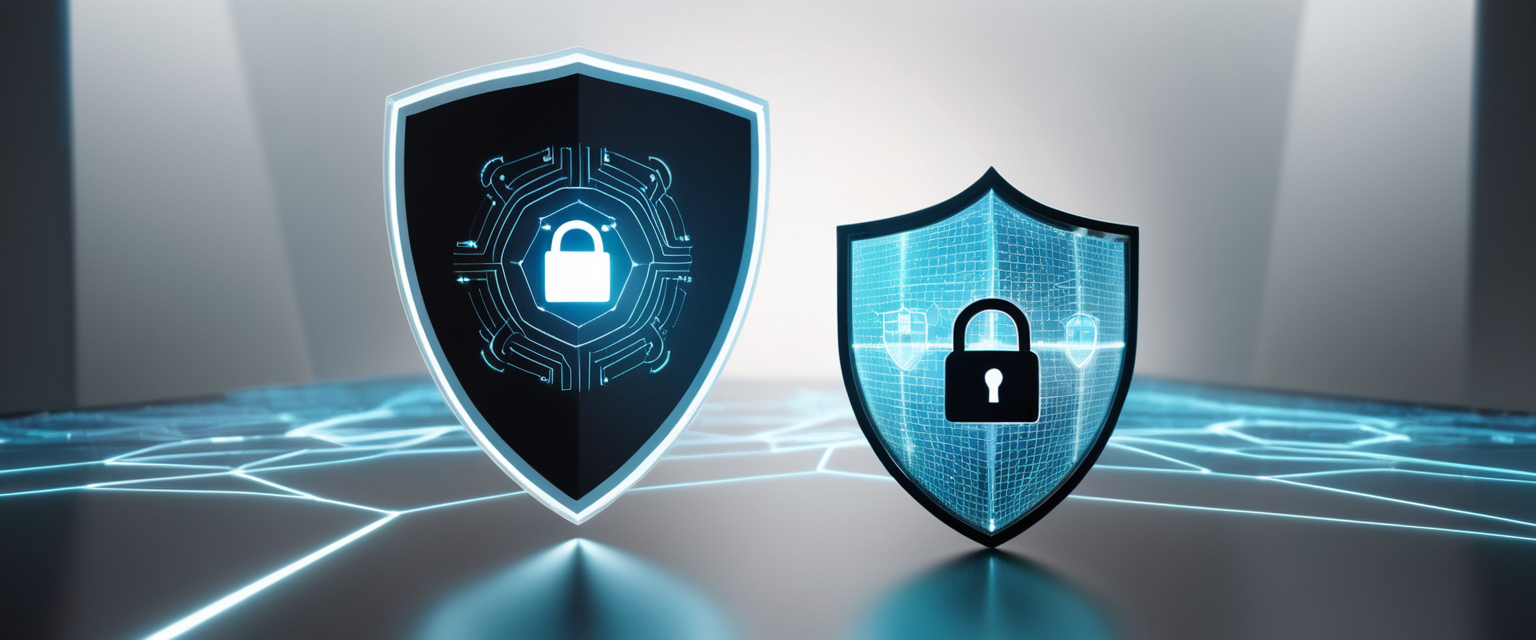
Distinguishing Between Free and Paid VPN Services
The VPN marketplace includes both free and paid options, but these offerings differ significantly in their security characteristics, privacy practices, and overall functionality. Free VPN services face a fundamental business challenge: maintaining server infrastructure and development costs requires revenue, but they charge no subscription fees, creating economic pressure to monetize user data instead. Many free VPN providers address this challenge by logging and selling user browsing data to advertisers and data brokers, effectively converting user privacy into a commodity. Some free VPN services bombard users with advertisements, implementing intrusive ad networks that track user behavior and often display ads for malicious applications or compromised websites.
Free VPN services frequently lack robust security features and encryption standards, leaving users vulnerable to interception and compromise despite the false impression that the VPN is protecting them. Malware concerns represent a genuine risk with some free VPN applications, as security researchers have discovered that certain free VPN apps contained malicious code, requested suspicious device permissions, and exhibited behaviors consistent with spyware. Some free VPN services implement bandwidth throttling that severely limits connection speeds and impose daily or monthly data caps that quickly consume allowances, forcing users to either upgrade to paid plans or seek alternative services.
Paid VPN services operate under business models where revenue comes from subscription fees rather than data sales, eliminating the economic incentive to log, collect, or monetize user data. Quality paid VPN services typically maintain large networks of geographically distributed servers, employ strong encryption standards, and invest significantly in security research and infrastructure improvements. Most reputable paid VPN services implement strict no-logs policies that prevent the VPN provider from maintaining records of user browsing activity, DNS queries, or connection information. Paid VPN services typically provide 24/7 customer support, money-back guarantees, and regular security audits by independent third parties that verify their privacy policies and security practices.
The economic value proposition of paid VPN services proves compelling for users serious about privacy and security, as subscription costs typically range from $4.99 to $12.99 monthly, representing a negligible expense compared to the financial and privacy risks that VPN protection mitigates. For most users seeking genuine privacy and security protection rather than false assurance, paid VPN services represent the significantly more prudent choice.
Enterprise Implementation and Business VPN Configurations
Organizations implementing VPN solutions on iPhone devices managed by employees require different approaches than consumer VPN usage, typically involving integration with Mobile Device Management (MDM) platforms and corporate infrastructure. Business VPNs differ fundamentally from consumer VPNs in that they are specifically designed to secure access to corporate resources including email servers, document repositories, internal applications, and network shares, rather than protecting consumer internet browsing. Organizations deploy VPNs on business iPhones primarily to ensure that employees accessing corporate resources from remote locations, home offices, or public networks cannot have that sensitive data intercepted or compromised.
Enterprise VPN implementations typically require more sophisticated authentication than consumer VPNs, often using certificate-based authentication that verifies both the device and user identity rather than simple username and password credentials. Organizations frequently combine VPN with additional security measures including Mobile Device Management that enforces security policies, device encryption, mandatory passcodes, and application restrictions, recognizing that VPN alone does not provide comprehensive security for enterprise mobile devices. VPN connectivity for corporate iPhones often operates automatically through configurations deployed via MDM, requiring minimal user interaction while ensuring consistent security policy implementation across all corporate devices.
However, important limitations exist in relying solely on VPN for enterprise mobile security. VPN encryption protects data while in transit between the device and corporate networks, but does not protect data stored on the device itself, which could be compromised if a device is lost, stolen, or malware-infected. VPN does not provide user identification, meaning it cannot verify that an authorized employee (rather than an attacker with a stolen device) is accessing corporate resources. Progressive organizations recognize that comprehensive enterprise mobility security requires layered approaches combining VPN with device management, identity verification, endpoint detection, activity monitoring, and additional controls.
Global Legal Restrictions and VPN Availability
The legal status of VPN services varies significantly across different countries and regions, with some nations imposing complete bans while others implement restrictions targeting non-approved VPN providers. North Korea implements a complete VPN ban as part of its comprehensive internet restrictions, though enforcement is largely academic given that most North Korean citizens lack internet access entirely and those with computers are limited to the national intranet network. China bans VPN services that have not been explicitly approved by the government, implementing sophisticated blocking techniques that detect and block unauthorized VPN traffic while permitting government-approved VPN services used primarily for surveillance.
Russia, Iran, Iraq, and several other authoritarian nations restrict or ban VPN services, often justifying restrictions as necessary for national security or preventing terrorism, though the actual effect involves suppressing online freedom of expression and preventing citizens from accessing uncensored information. The United Arab Emirates permits only government-approved VPN services and imposes substantial fines ranging from $41,000 to $136,000 for unauthorized VPN use. Turkey implemented VPN restrictions beginning in 2016 and has progressively tightened restrictions over time, with VPN usage spiking dramatically during periods of political protests and censorship.
Myanmar introduced a new security law in January 2025 that criminalized unauthorized VPN installation, imposing potential prison sentences up to six months or fines up to $4,750. Countries including Egypt, Pakistan, India, Uganda, and Venezuela implement various VPN restrictions ranging from complete bans to requirements that VPN providers register with and provide data to government authorities, effectively eliminating the privacy protection VPNs are designed to provide.
In contrast, VPN use remains legal and widely accepted in democratic nations including the United States, United Kingdom, Canada, Australia, Japan, and most European countries. Even in countries where VPN use is technically legal, governments have increasingly attempted to monitor VPN services and restrict their effectiveness through blocking and detection techniques. Users should carefully research the legal status of VPN use in their jurisdiction before installing and activating VPN services on their iPhones, as legal penalties for unauthorized VPN use in restrictive countries can include significant fines and imprisonment.
Limitations and Misconceptions About VPN Protection
Despite the significant protective benefits VPNs provide, important limitations and misconceptions surround VPN functionality that users should understand to avoid developing false confidence in VPN protection. A critical misconception holds that VPNs provide complete anonymity and prevent all forms of tracking, when in reality VPNs provide privacy from ISP monitoring and network-level eavesdropping but do not prevent higher-level forms of identification and tracking. Even with VPN protection active, users can still be tracked through browser cookies, website accounts they login to, mobile app identifiers, and other application-level tracking mechanisms.
VPNs do not prevent malware, phishing, and social engineering attacks that trick users into voluntarily disclosing information or downloading malicious software. A user connected through a VPN can still visit malicious websites, fall victim to phishing attempts that appear to come from legitimate organizations, download files infected with malware, and be compromised through social engineering attacks. VPNs do not replace antivirus software and provide no protection against malware running on the device itself.
VPNs encrypt the connection between the iPhone and the VPN server but do not encrypt communications after they exit the VPN server, meaning if a user accesses an unencrypted website through HTTP rather than HTTPS, the data becomes readable once it exits the VPN tunnel. Websites and online services can still track user behavior through login credentials, cookies, and tracking pixels even when accessed through a VPN, since the VPN only protects the network layer rather than preventing higher-level tracking mechanisms.
Some users develop a false sense of security with VPN believing it provides complete protection against all threats, when VPN represents just one security tool among many that should be implemented including strong passwords, two-factor authentication, regular software updates, and careful online behavior. The VPN provider itself represents a potential vulnerability; users must trust the VPN provider not to log or sell their data, and choosing reputable providers with verified no-logs policies and independent security audits proves essential.
iCloud Private Relay as an Alternative Privacy Tool
Apple provides an alternative privacy solution called iCloud Private Relay that serves similar functions to VPN but operates differently and carries important limitations users should understand when deciding between iCloud Private Relay and traditional VPN services. iCloud Private Relay, available with iCloud+ subscriptions, encrypts Safari browser traffic and routes it through two separate relays operated by Apple and a content delivery network partner, preventing websites from tracking user location and IP address. Unlike VPN which encrypts all device traffic across all applications, iCloud Private Relay only protects Safari browser traffic and some system services, leaving other applications and non-Safari browsing unprotected.
iCloud Private Relay provides advantages including seamless integration within the Apple ecosystem, minimal performance impact due to optimization for Apple infrastructure, and use of dual-hop architecture that provides enhanced privacy. However, iCloud Private Relay lacks robust security features beyond privacy, requires paying for iCloud+ subscription, only works on Apple devices and functions most effectively in Safari rather than other browsers or applications, and provides narrower coverage than VPN. The distinction between iCloud Private Relay and VPN means they serve different privacy needs; iCloud Private Relay suffices for casual Safari browsing privacy while VPN provides broader protection across all applications and network communications.
What VPNs Successfully Protect Versus What Remains Vulnerable
Understanding precisely what information VPNs hide versus what remains exposed prevents users from developing unrealistic expectations of VPN protection. VPNs successfully mask IP addresses, preventing websites and services from identifying the user’s geographic location and internet service provider. VPNs encrypt DNS requests and prevent ISPs from logging and selling information about which websites users attempt to access. VPNs encrypt all transmitted data and prevent network-level observers including ISPs, public Wi-Fi operators, and attackers from viewing transmitted files, passwords, communications, and personal information.
However, VPNs do not hide browsing activity from websites themselves, which can still observe user interactions through login credentials and tracking mechanisms regardless of VPN use. VPNs do not prevent search engines from recording and profiling search histories for users who login to search engine accounts. VPNs do not block malware, ransomware, viruses, or other malicious software that infects the device through vulnerabilities or social engineering. VPNs do not prevent tracking through browser fingerprinting techniques that websites employ to identify users based on browser configuration and device characteristics even when IP address is masked.
VPNs cannot be relied upon for complete anonymity, as the VPN provider itself possesses extensive information about user activity and could theoretically provide this information to government authorities through legal process. Most VPN providers log connection information including times when users connect and disconnect, duration of connections, and data volumes transferred, meaning complete activity records may exist with the VPN provider even when those records are not sold to third parties. For users seeking true anonymity, technologies like Tor browser provide stronger anonymity guarantees than traditional VPN services, though at the cost of significantly reduced connection speeds.

Practical Recommendations for iPhone Users Considering VPN
iPhone users should implement VPN protection strategically based on their specific security and privacy needs rather than assuming VPN is necessary for all internet usage. VPN protection becomes particularly important when connecting to untrusted networks including public Wi-Fi in cafés, restaurants, hotels, airports, libraries, and other public locations where network operators do not implement security controls and attackers commonly operate. VPN use proves valuable when conducting sensitive activities including online banking, shopping, entering passwords, accessing private communications, viewing medical information, or other activities involving sensitive personal data.
Users concerned about ISP surveillance and data monetization should maintain VPN protection even on their home networks if they value privacy from their internet service provider. Users working remotely and accessing corporate resources should follow their organization’s VPN policies and enable VPN whenever recommended or required by their employer to ensure corporate data is protected. Users traveling internationally and desiring access to services and content from their home country can use VPN to access geographically restricted content while traveling.
Conversely, VPN may not be necessary when browsing casual, non-sensitive web content on trusted home networks where connection security is less critical. Users experiencing compatibility issues with certain applications or services that block VPN traffic can disable VPN temporarily for those specific uses. Given the modest subscription costs of quality VPN services, users serious about security and privacy should prioritize paid VPN providers that explicitly commit to not logging user data rather than relying on free VPN services that frequently monetize user information.
Unlocking Your iPhone’s VPN Potential
VPNs serve multiple important functions on iPhone devices that collectively provide significant security and privacy enhancements in an increasingly surveilled internet environment. By encrypting all data transmission between the iPhone and remote servers, VPNs protect sensitive information from interception by attackers on public networks, from observation by internet service providers, and from collection by tracking systems embedded throughout web infrastructure. Through IP address masking and traffic routing through geographically distributed servers, VPNs prevent websites, ISPs, and geographic tracking systems from correlating user online activity with their actual location and identity.
VPNs eliminate ISP’s ability to observe, log, and monetize user browsing behavior, preventing the algorithmic profiling that ISPs use to sell user data to advertisers. VPNs prevent ISP implementation of bandwidth throttling that artificially limits connection speeds based on application type and data usage patterns. For users in countries implementing internet censorship or geographic content restrictions, VPNs provide functionality to access otherwise blocked information and services.
The limitations of VPN protection require acknowledgment and realistic assessment. VPNs do not provide complete anonymity, do not prevent higher-level application tracking, do not protect against malware and phishing, and represent only one component of a comprehensive security strategy that should include strong passwords, two-factor authentication, antivirus protection, and careful online behavior. VPN selection proves critical, as free VPN services frequently monetize user data and introduce security vulnerabilities, while quality paid VPN services provide robust encryption, no-logs policies, and reliable performance.
For iPhone users concerned about security on public networks, privacy from ISP surveillance, access to geographically restricted content, or protection of sensitive online activities, quality VPN services represent valuable tools that provide meaningful protection against numerous threats in the modern internet landscape. By understanding what VPNs actually protect, what limitations they carry, and how to select reputable VPN services, iPhone users can make informed decisions about when and how to implement VPN protection in their security and privacy strategies.

